(VAN) The Ministry of Agriculture and Rural Development, the Ministry of Health, and the Ministry of Industry and Trade coordinate to build a food safety risk assessment system within the framework of the SAFEGRO project.
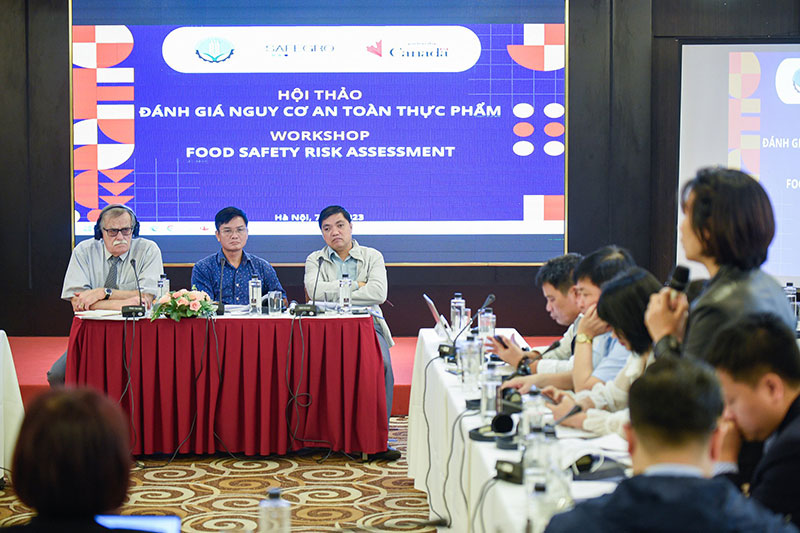
The workshop “Food safety risk assessment” was held on November 7 in Hanoi. Photo: Quynh Chi.
The workshop “Food safety risk assessment” on November 7 marked the midpoint of the Safe Food for Growth Project, funded by the Canadian Government and assigned to MARD to implement from 2021 to 2025. The workshop aims to identify limitations in food safety risk assessment in Vietnam and propose solutions to support the SAFEGRO Project in the future.
With representatives from the Canadian Embassy and relevant agencies on food safety risks in the health sector, industry and trade, agriculture, and academic institutions, the workshop was an open sharing session. The presentations serve as knowledge exchange between domestic and international agents on food safety risk assessment.
The common goal to improve food quality
The SAFEGRO project has three main components to comprehensively improve food safety in Vietnam: support for policy development; improve community capacity and establish a safe food supply chain; change consumer behavior and create a safe, quality, and reasonably priced agricultural product market.
Recently, a delegation of food safety managers went on a study trip to China – a country with a robust food safety system. After the trip, the delegation understood better the role of the private sector and the risk management system, especially in trade and public health. SAFEGRO project study group emphasized the international role of the China National Center for Food Safety Risk Assessment.
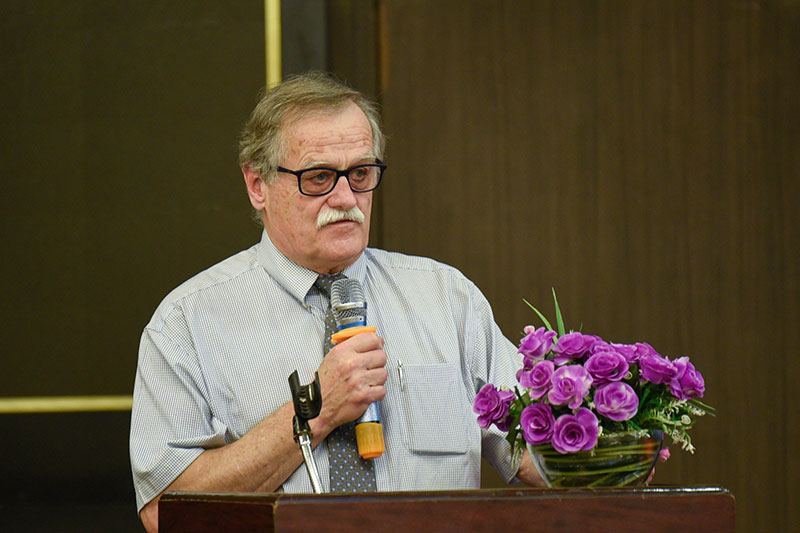
Canadian expert: We need specific proposals from Vietnam to continue implementing the SAFEGRO Project. Photo: Quynh Chi.
Mr. Brian Bedard, Director of Food Safety and Animal Health (Alinea International) emphasized that food safety risk assessment is the key to raising farmers’ and consumers’ awareness. He shared: “I am confident that Vietnam’s current legal framework creates favorable conditions for methodical food safety management. The starting point of Canada – Vietnam cooperation is from domestic market demand, which is shifting toward clean and sustainable food consumption”.
The three architects of Vietnam’s food safety industry
Recently, agencies under MARD, the Ministry of Health, and the Ministry of Industry and Trade have effectively coordinated to build a management system and assess food safety risks in the country. In June 2023, three Ministries established a Food Safety Risk Assessment Technical Group. In the long term, this group aims to be the core team for Vietnam’s National Risk Assessment Center for Food Safety in the future.
Mr. Nguyen Nhu Tiep – Director of the Department of Quality, Processing and Market Development (MARD), advocates for stable food safety risk assessment. In the context of a newly developed industry with a lack of human resources and resources, it is necessary to identify risk areas and levels of impact to act effectively. “Ensuring food safety is the responsibility of every Vietnamese person. Chain management needs to come from the root. Agencies under the MARD are responsible for monitoring, evaluating, warning, and managing food safety risks for agricultural and aquatic foods for consumption. But to identify hazards and assess exposure, we need to cooperate with ministries, branches, and localities,” Mr. Tiep said.
However, inter-sectoral coordination is still unstable, and human resource training is not uniform across the country. The Director commented that Vietnam’s agricultural system is peculiar. For example, in other countries, food is transported directly from the farm to the factory. However, in our country, traders are an important mediator in the food chain because production is still fragmented. Therefore, Mr. Tiep suggested the project specifically identify trainers and trainees from central to local levels, and at the same time, build a training model based on Vietnamese agricultural parameters.
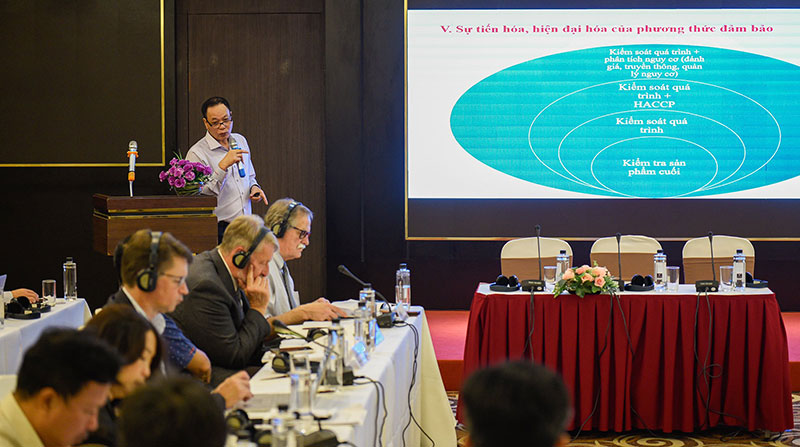
Director Nguyen Nhu Tiep shared the agricultural sector’s approach to food safety management. Photo: Quynh Chi.
In addition, the Ministry of Health’s role is in food safety risk assessment development, incident reporting, and actions relating to food poisoning. The Department of Food Safety provides information regarding how the public health sector manages food safety risk assessment. Recently, the Department of Food Safety implemented Project 518/QD-BYT to build a rapid warning system and analyze food safety risks at all levels. However, implementation is still limited due to a lack of funding, and comprehensive goals have not been achieved.
Representative of the Food Safety Department, Mr. Luu Duc Du, emphasized that risk assessment is not only a sampling and testing activity but also indicates a determination to protect community health. He shared: “In the current context, traceability is still undeveloped and is an obstacle to investigation. Trade without invoices or trade through unofficial channels is still common. In addition, coordination and information sharing between sectors and localities is still limited.”
Also, a contributor to the SAFEGRO Project, the Ministry of Industry and Trade is building a legal system to handle unsafe food. The Ministry actively provides professional training to market management forces on the inspection and handling of administrative violations of food safety. Agencies under the Ministry guide business and food processing establishments to apply advanced quality management systems. The Ministry has also signed cooperation agreements in food safety with China and New Zealand.
In the coming time, the Ministry of Industry and Trade will focus on completing legal documents to help manage food safety in production, export, import, and trade, as well as management of supermarkets, stores, and other establishments as prescribed by law.
Representatives of the three ministries wished to create a more stringent and effective food safety management system. To build this system, managers propose investing in a thorough evaluation process, focusing on researching food safety policies. In addition, it is necessary to unify the database resulting from inspections on food safety in various locations.
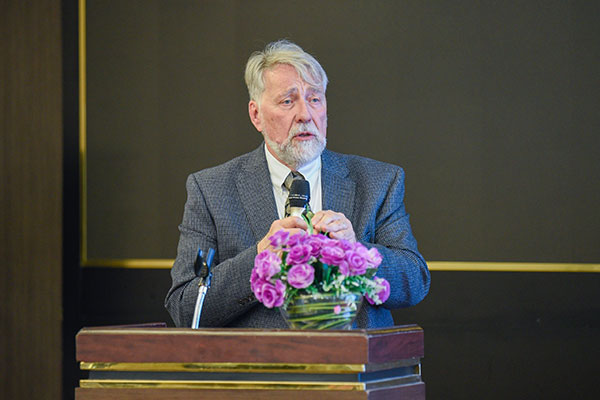
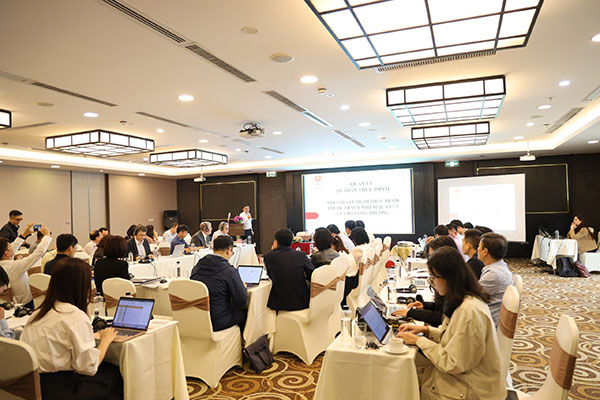
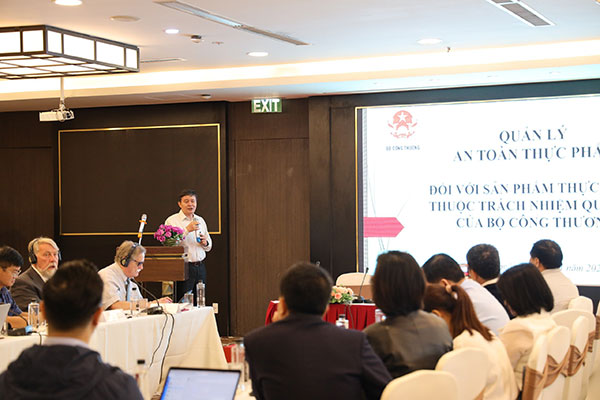
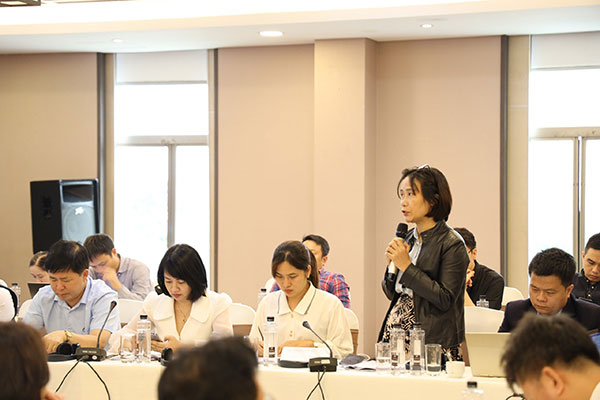
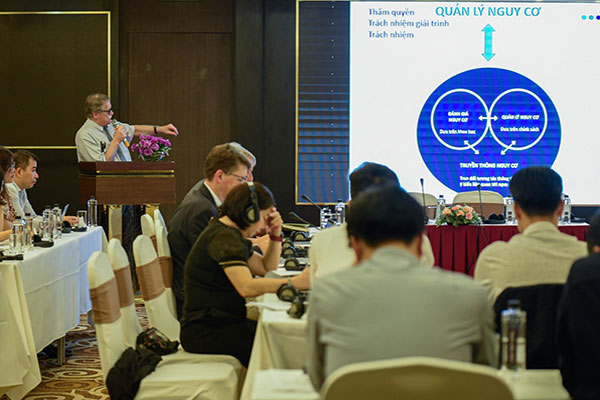
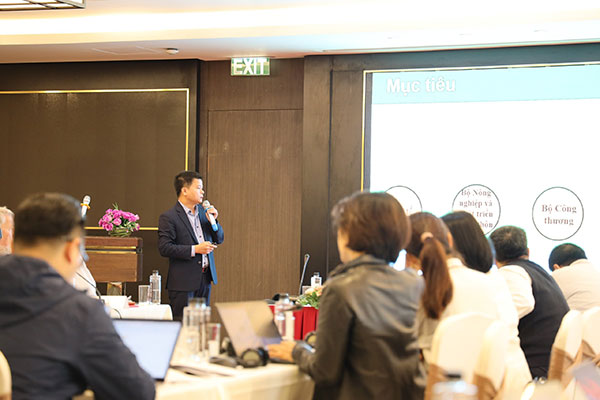
With 50 scientific experts and managers, the workshop shows a comprehensive picture of food safety risk assessment in Vietnam. In addition, models from Canada and China serve as points of reference for Vietnamese experts to identify food safety risks. Proposals and solutions discussed in the workshop will soon be implemented, contributing to the overall goal of the SAFEGRO Project and improving food safety in Vietnam.
Translated by Quynh Chi
Vietnam Agriculture

